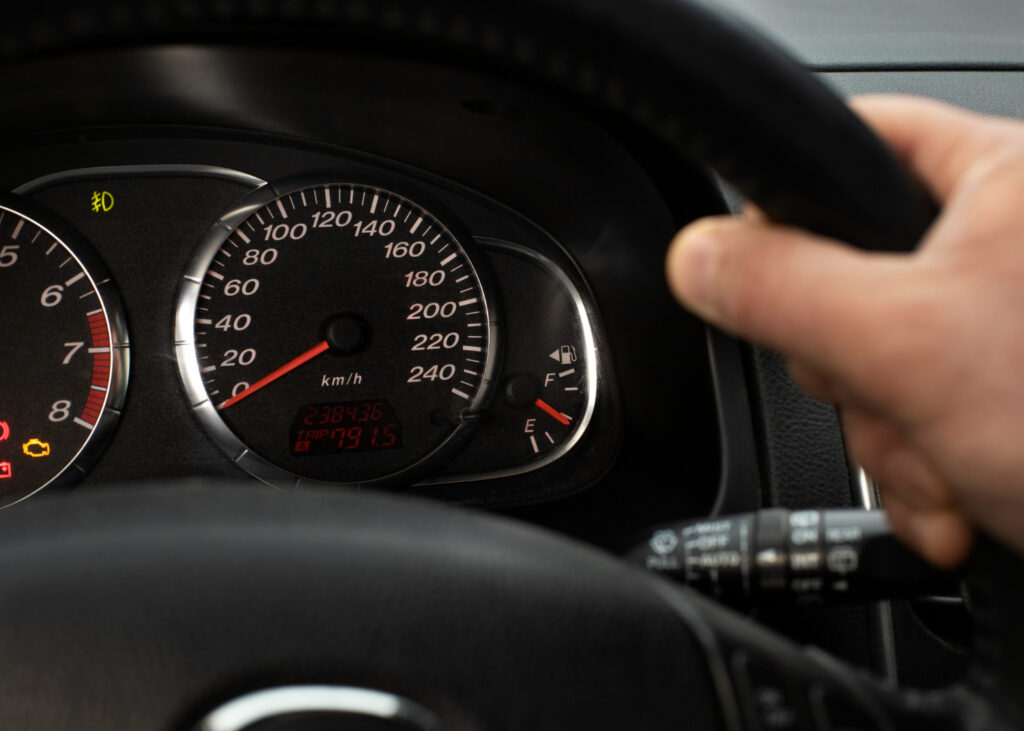Car mileage perhaps is the major concern for every vehicle owner in recent times. Be it a gas-powered sedan, a diesel truck, or even a hybrid, expenses toward fuel make up a fairly consistent chunk of your expenditure that adds up over time. Learning how to increase your car’s mileage also means saving money while reducing your carbon footprint by releasing fewer emissions into the air. Here’s a detailed discussion on 10 tips to improve car mileage and save fuel, while answering questions such as what is car mileage and how to increase bike mileage.
What is Car Mileage?
As described herein, the first thing to understand before going into the tips for improving the mileage of a car is to know what is car mileage. Quite simply, it means the distance a vehicle can travel per unit of fuel. It is usually measured in miles per gallon or kilometers per liter. The higher it is, the more fuel-efficient the car is, meaning less fuel is used to travel a given distance. This improvement in car mileage can greatly cut down the overall cost of driving and becomes an important factor for environmentally conscious drivers.
Why Improving Car Mileage is Important
- Savings on fuel costs: A high-mileage vehicle consumes less fuel; refueling will be less often, hence less money to be spent on fuel.
- Environmental effects: With better fuel consumption, the amount of emission will be limited, which in turn can provide one with fresher air and minimal greenhouse gasses.
- Engine lifespan: Not only does an efficiently running car conserve fuel, but it also provides less load on the engine leading to long-lasting performance.
Now that we know how important car mileage is, let us delve deep into how we can improve it with these expert tips.
Read More: Why Health Insurance is Necessary for All
1. Regular Maintenance
One of the best ways to improve car mileage is through proper, regular maintenance. A well-maintained car runs more smoothly and hence efficiently, which obviously leads to better fuel consumption.
- Air filter: A dirty or clogged air filter reduces the amount of air that can come inside the engine, making it harder; this is why it consumes more fuel. Changing air filters with recommended timing can ensure fuel efficiency up to as much as 10%.
- Oil changes: Using the right oil and changing it at regular intervals ensures that the engine is efficient in lowering fuel consumption.
- Spark plugs: Worn-out spark plugs result in engine misfires, hence decreased fuel efficiency. Regular check-ups and replacement of spark plugs may help in improving car mileage.
2. Drive Smoothly and Avoid Aggressive Acceleration
The way you drive has a major effect on your car’s fuel efficiency. One of the best ways to increase mileage is by driving smoothly and avoiding aggressive acceleration or braking means :
- Gradual acceleration: Flooring makes the engine drink more fuel. Accelerate gradually for the engine to efficiently use fuel.
- Smooth braking: Frequent use of brakes and hard braking wastes energy and fuel. Anticipate stops and use less pressure on the brakes to maintain the momentum of your car.
3. Reduce Excess Weight
Carrying extra weight in the vehicle is bound to drop fuel economy. The heavier the car, the harder the engine has to work; the harder the engine works, the more fuel it uses.
- Remove extra items: For those who have heavy equipment, tools, or luggage in the trunk, removing them unless they are needed could pay off.
- Avoid roof racks: Roof racks and carriers increase the resistance of wind, hence making the engine struggle to pull through and increasing fuel consumption. If you are not using them, take them off.
4. Check Tire Pressure
Underinflated tires can cut down fuel efficiency by up to 3%. Properly inflated tires lower the rolling resistance so that your car moves much more easily and efficiently.
- Check tire pressure: Always check your tire pressure and maintain it at the recommended level set by the manufacturer. The harder the engine has to work due to underinflated tires, the lower the mileage.
- Tire alignment: When the tires of your car are not properly aligned, they tend to create much resistance, thus reducing fuel efficiency. Good alignment translates to smoother drives and greater mileage.
5. Use Cruise Control on Highways
The cruise control on highways helps them maintain their speed, thereby limiting the number of times acceleration and deceleration are applied. Steady driving like this improves mileage because there is no unnecessary consumption of fuel.
- Optimal speed: Cruise control functions most effectively when running at highway speeds. It’s best not to use it in the city since one has to stop and make more turns.
- Fuel-efficient speed: Studies have shown that the average fuel efficiency is realized at speeds of 55-65 mph. At these speeds, cruise control can grossly increase mileage.
6. Avoid Idling
Idling wastes fuel without a good cause. Modern automobiles use very little fuel for restarts. So, if you are parked and waiting for more than a minute, it’s best to shut off your engine.
- Switch off: It is better not to waste fuel while waiting in a queue, giving a pickup, or during a short stop. Utilize the start-stop technology: Start-stop technology automatically turns off the engine while idling and automatically restarts it with the press of the accelerator.
7. Choose the Right Fuel
Different engines run on a variety of fuels. The kind of fuel that a car uses is very important since it directly relates to the performance and mileage that one can get from their vehicle.
- Regular vs Premium: Unless your car requires premium fuel explicitly, money can be saved using regular unleaded without much performance and/or mileage sacrifice.
- Diesel Cars: If you have a diesel car, make sure that you use the highest-quality diesel fuel possible. Low-quality fuel will result in engine deposits, which lower fuel economy. Understanding how to increase the mileage of a diesel car includes using the proper fuel, maintenance, and fuel-efficient driving practices.
8. Use Air Conditioning Judiciously
The air conditioner puts extra load on the engine, due to which it gives poor mileage. However, there are ways to minimize its impact on the car mileage.
- Limit usage: Limit the usage of air conditioning when driving in the city or at lower speeds, as this consumes more fuel under such conditions.
- Use the vents: At slower speeds, roll down the windows or open the ventilation in the car instead of using air conditioning.
- Highway speeds: For highway driving, air conditioning generally is more fuel-efficient than rolling down the windows, which creates wind resistance and decreases mileage.
9. Plan Your Trips Efficiently
Planning your trips can reduce the amount of fuel you use. Short trips and cold starts consume more fuel because the engine doesn’t have time to come to its operational temperature.
- Combine errands: Instead of taking multiple short trips, try combining all of your errands into a single trip. This will let your engine warm-up and operate more efficiently for better mileage.
- Use GPS: Utilize GPS or apps to find routes with fewer stops and less flow of traffic that could help you save on fuel.
10. Pay Attention to Fuel Economy Indicator
Most new cars have fuel economy indicators or trip computers displaying the real-time fuel efficiency of your car. By gauging this information, it can help you alter your driving style and improve your mileage.
- Observe the display showing fuel economy: By gauging this display in your car, you will learn how to adjust your driving style accordingly in order to achieve maximum fuel efficiency.
- Logging your mileage manually: In addition, you can keep a running total of how much fuel you use and how many miles you drive in order to see if these efforts toward higher fuel efficiency really pay off.
Conclusion
Improving car mileage is not only about saving money on fuel but also about maintaining your vehicle’s performance and reducing your environmental impact. Whether one has a gasoline-powered, diesel, or hybrid car, following these 10 tips will considerably increase the car mileage. Further, in case one owns a bike too, these tips will be worth looking over for improving bike mileage.
Whether one wants to ask the best ways to enhance mileage for a diesel car or is in quest of techniques to improve his driving skills for better fuel economy, the steps highlighted herein are just what will help. These simple regular maintenance, mindful driving, and thoughtful planning will let you enjoy better mileage with cost-effective driving.
In the process, with the application of these techniques, you will save money on every gallon at the pump and get smoother, more efficient rides every time.
Read More: Best Car Insurance Renewal Options in India: How to Renew Car Insurance for Maximum Benefits

